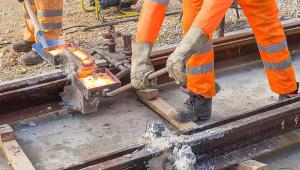30 July 2004
Hundreds of new trains operating on Britain's rail network have proved less reliable than the old slam-door rolling stock due for abolition, MPs have reported.
Many new models have also been delivered late, despite large public subsidies given to the privatised network, and their appearance is not expected to reduce delays, according to the Commons' Public Accounts Committee.
In a report published on July 27, MPs blame the soon-to-be-abolished Strategic Rail Authority, which failed to get a grip on the costs and the fragmented nature of the rail industry.
Consequently, the disparate bodies in the sector are urged to work more closely with manufacturers and passenger groups to ensure that new designs meet passengers' needs, particularly those of disabled users, which the MPs found are still often ignored.
Since rail privatisation in 1996, the 25 train operating companies (Tocs) holding franchise agreements with the SRA have ordered more than 4,500 new trains worth around £4.2bn.
But the MPs found that problems stem from the complex set of relationships on the network — now being addressed by Transport Secretary Alistair Darling.
'Several organisations are involved in getting a new train into service and there is a range of contractual and quasi-contractual relationships between them,' the MPs write.
Companies owned by major banks often fund train purchases, which then lease the stock to Tocs. These companies continue to receive payments from Tocs through fares and government subsidies.
PAC chair Edward Leigh warned the Department for Transport, which will shortly take over the SRA's functions, that it must now 'take the lead' in overcoming problems.
PFjul2004



















